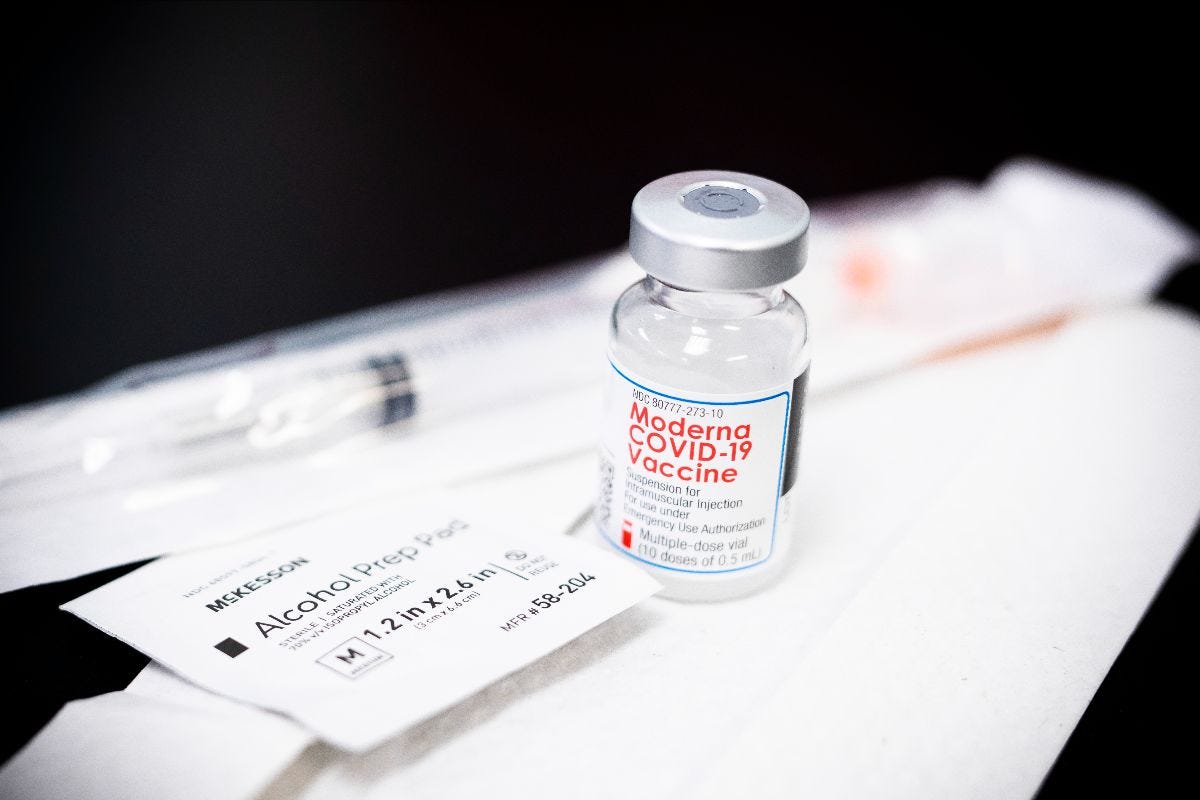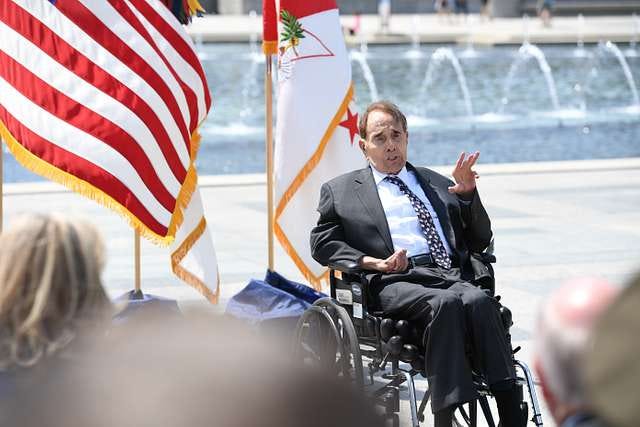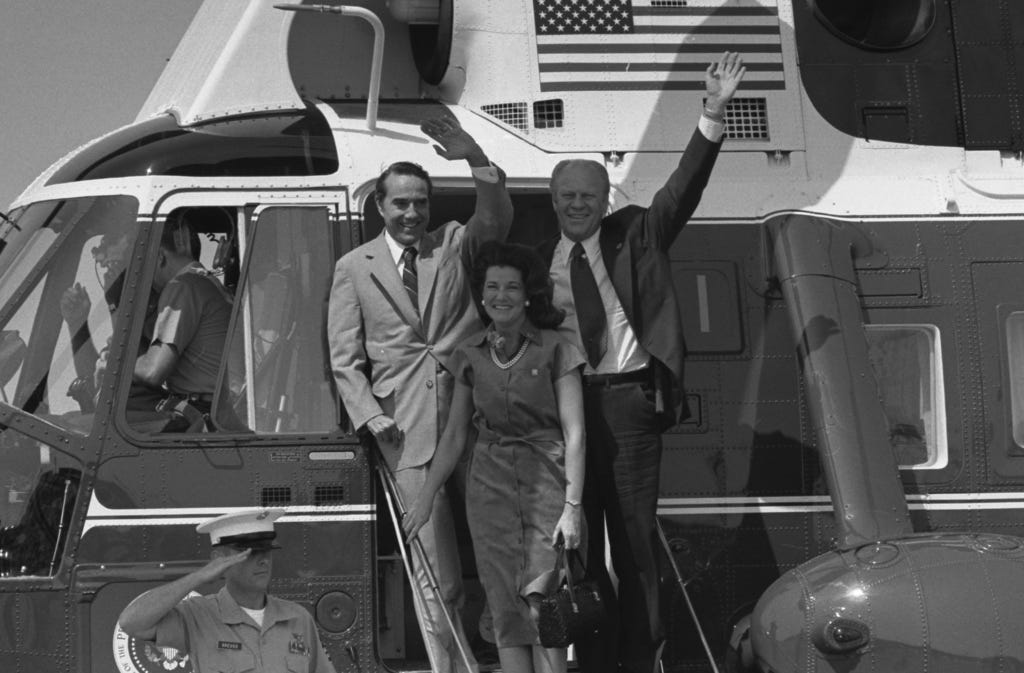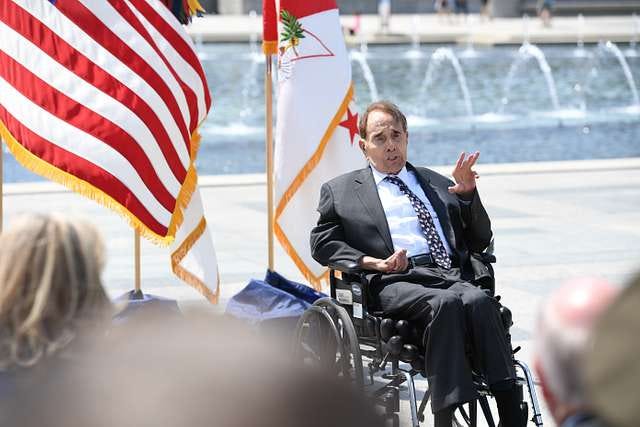Wake Up To Politics - December 6, 2021
Wake Up To Politics: A look at Bob Dole’s legacy
by Gabe Fleisher
Good morning! It’s Monday, December 6, 2021. Election Day 2022 is 337 days away. Election Day 2024 is 1,065 days away.
“Among the greatest of the Greatest Generation”: Sizing up Bob Dole’s legacy
Former Kansas Sen. Bob Dole, who served as the top Republican in the Senate for 11 years and was chosen as his party’s presidential standard-bearer in 1996, died on Sunday
Dole was 98 years old: he was born in 1923, grew up in Russell, Kansas, during the Dust Bowl and Great Depression, and survived a life-altering injury while serving in World War II, before embarking on a 45-year political career that lifted him to Senate statesman status and almost to the presidency.
The very longevity of his time on the political stage is striking. As a second-term senator, Dole was tapped as Gerald Ford’s running mate in the 1976 presidential election. It was a full 20 years later that Dole returned to a national ticket, this time as the GOP presidential nominee.
He lost in a landslide to President Bill Clinton, 379 electoral votes to 159, and became the only person in U.S. history to go down as an unsuccessful nominee for both president and vice president.
In between those losses, he waged two other bids for the White House, in the 1980 and 1988 Republican primaries, his presidential aspirations denied each time.
Dole’s career, spanning from the Eisenhower to Clinton eras, lasted long enough that TIME Magazine asked “Is Dole Too Old for the Job” in 1996 when he was a 72-year-old presidential nominee. (For the record, that makes him younger than both presidential nominees and the Democratic runner-up in the last election, the current top Republican in the Senate, and the top three Democrats in the House.)
Dole’s arc also mirrored that of his beloved Republican Party. He first entered the national consciousness as a “hatchet man” for President Richard Nixon, serving as chairman of the Republican National Committee during the Watergate era. In 1976, he was the conservative choice to be Ford’s running mate, bumping the more moderate incumbent VP Nelson Rockefeller from the ticket.
But by the 1996 primaries, he was the more moderate candidate himself, in a field that included social conservative outsiders Pat Buchanan and Steve Forbes. “Bob Dole saw every stage of the GOP,” Russell Berman wrote in The Atlantic this weekend.
Once out of the political arena (and after his days as a pitchman for Viagra), Dole wrestled with the changes in the modern Republican Party. Asked on Fox News in 2013 whether he and his contemporaries would have been successful in today’s GOP, he responded: “Reagan wouldn’t have made it. Certainly Nixon couldn’t have made it, because he had ideas. We might have made it, but I doubt it.”
Still, Dole stood out among GOP luminaries in backing Donald Trump in 2016. He was the only former Republican presidential nominee to attend Trump’s convention in Cleveland, even as a wheelchair-bound nonagenarian, and as Mitt Romney, John McCain, and both George Bushes stayed away.
Again, though, Dole followed a similar arc as other Republican leaders: though a Trump supporter in 2016 (“I couldn’t beat a Clinton – but maybe he can,” he told CNN during the convention), the former Senate leader declared himself “Trumped out” by July of this year. Dole forcefully shot down Trump’s false claims about the 2020 election, saying that “he never had one bit of fraud in all those lawsuits he filed and statements he made.”
“The ultimate party loyalist had fundamental beliefs about politics that would now get him labeled a RINO, or worse,” in today’s GOP, Jeff Greenfield wrote in Politico Magazine on Sunday.
In a slate of tributes, Dole — the final presidential nominee of the Greatest Generation — was hailed as one of the last lions of an era gone by. “Bob was an American statesman like few in our history,” President Joe Biden, who visited Dole earlier this year when his friend and former colleague was diagnosed with stage 4 lung cancer, declared in a statement. “A war hero and among the greatest of the Greatest Generation.”
“Bob Dole was one of the giants of the Senate and one of the bravest of the brave,” Sen. Lindsey Graham (R-SC) said. “When I think of the Greatest Generation, I think of Senator Bob Dole — a man who dedicated his life to serving our country,” Sen. Mitt Romney (R-UT) added.
“His name is etched into the history of this great nation,” Sen. Ted Cruz (R-TX) concluded.
In his New York Times obituary, Katherine Seelye wrote that Dole “came to personify the resilience of his generation,” after spending three years in hospitals recovering from the wartime blast that left him forever unable to use his right arm. (Dole was almost always seen carrying a pen in his right hand in public, to ensure people wouldn’t try to shake it.)
Dole was also remembered for his contributions to a series of bipartisan accomplishments that seem impossible today. He risked his political career to support the Civil Rights Act in 1964 and the Voting Rights Act of 1965; joined with liberal giants George McGovern and Hubert Humphrey in the 1970s to expand food stamps and create the modern school lunch program; and reached across the aisle to help rescue Social Security and create the Americans with Disabilities Act in the 1980s.
Some of those bipartisan strides came as a result of partnerships with fellow veterans-turned-lawmakers (such as Daniel Inouye and Philip Hart, both of whom he befriended in a Michigan hospital after the war and would serve with in the Senate).
Those veteran-politicians was another way in which his time in Washington differed from the current era. In 1973, during Dole’s first term in the Senate, 390 lawmakers (about 73% of Congress) had some type of military experience on their resumes. Today, that number is 91, its lowest level since World War II.
“I don’t like to second-guess, but I do believe we’ve lost something,” Dole told USA Today in July.
“I can’t get my hand on it, but we’re just not quite where we should be, as the greatest democracy in the world,” he continued. “And I don’t know how you correct it, but I keep hoping that there will be a change in my lifetime.”
Dole would pass away within five months.
Ask Gabe
I’ll be taking a question this morning on efforts to loosen patent protections for the Covid vaccines. As always, if you have a question on U.S. politics, feel free to send it my way and I might give an answer right here in the newsletter.
Q: Your discussion of Biden’s handling of the coronavirus reminded me of a question I can’t seem to find an answer to: Do you happen to know anything about what Biden is doing regarding his campaign promise to break up vaccine patents in an effort to get more vaccines out internationally? Is that plan still in progress? — Alyssa P.
A: President Biden faced immense pressure upon taking office to back efforts to waive patent protections for the Covid-19 vaccines, so poor countries could produce generic versions of the vaccines and make them more widely available worldwide.
Biden originally hesitated to support the push for a World Trade Organization (WTO) waiver to the vaccine makers’ intellectual property rights, until eventually announcing his backing in May.
What has happened since then? Not much. The notoriously slow WTO has remained deadlocked for months, with several countries (and the pharmaceutical industry) still opposed to the efforts, and no waiver has been approved. In the meantime, the White House has maintained that it doesn’t have “the legal ability to compel” companies to share their vaccines without a WTO waiver; according to leaked documents, the U.S. has done little behind closed doors in WTO meetings to push for one.
(It’s worth noting here that some experts argue that a WTO waiver would not actually increase availability of the vaccine, since it would just increase competition over the raw materials that make them, which are already in short supply.)

Still, a group of Democratic lawmakers penned a letter to Biden last month urging him to redouble his efforts in support of a waiver, and Biden did issue a new statement to that effect last week. The WTO had been scheduled to meet this week to hash out the issue, but fears of the Omicron variant led the summit to be postponed indefinitely.
With talks at a standstill and no immediate plans to reschedule the meeting, it’s unclear whether there is route for a patent waiver to be approved in the near future.
One final note: In her question, Alyssa mentioned the fact that Biden made a promise related to this issue during the campaign. His promise was made in a July 2020 video with activist Ady Barkan, in which the then-candidate said he would “absolutely positively” share technology and access with other countries if there was a Covid vaccine invented by the the U.S. government.
Is there a vaccine invented by the U.S. government? That is a complicated question: the National Institutes of Health (NIH) are currently engaged in a patent dispute with Moderna over who deserves credit for developing the vaccine manufactured by the company. The fight is still ongoing, but if the U.S. ends up being designated a co-owner of the vaccine, the Biden administration wouldn’t have to wait for the WTO and — as a partial owner of the patent — could begin licensing the technology behind the shot to other countries itself.
That dispute has yet to be fully resolved, but is another possible action area in the push to share the vaccine formula across the globe and allow poorer countries to manufacture Covid shots.
Daybook
All times Eastern.
→ President Joe Biden and Vice President Kamala Harris will receive their daily intelligence briefing at 10 a.m. Later, at 2 p.m., Biden will deliver remarks on “how his Build Back Better Act will lower the costs of prescription drugs for millions of Americans.”
→ White House Press Secretary Jen Psaki will hold her daily press briefing at 1 p.m.
→ The Senate will convene at 3 p.m. and continue debate on the nomination of Jessica Rosenworcel to serve another term as a member of the Federal Communications Commission (FCC). The chamber will hold a cloture vote at 5:30 p.m. to advance Rosenworcel’s nomination.
This will be Rosenworcel’s third five-year term on the FCC; President Biden designated her as the agency’s acting chair in January, and if confirmed to another term by the Senate, she will become permanent chair.
→ The House will not meet today.
→ The Supreme Court will release orders at 9:30 a.m. and later hear oral arguments in two cases.
At 10 a.m., the court will hear arguments in Patel v. Garland, on whether a federal court can review a decision by the Justice Department’s Board of Immigration Appeals to deny an immigrant’s green card application.
At 11 a.m., the court will hear arguments in Hughes v. Northwestern University, a case on the Employee Retirement Income Security Act (ERISA).





